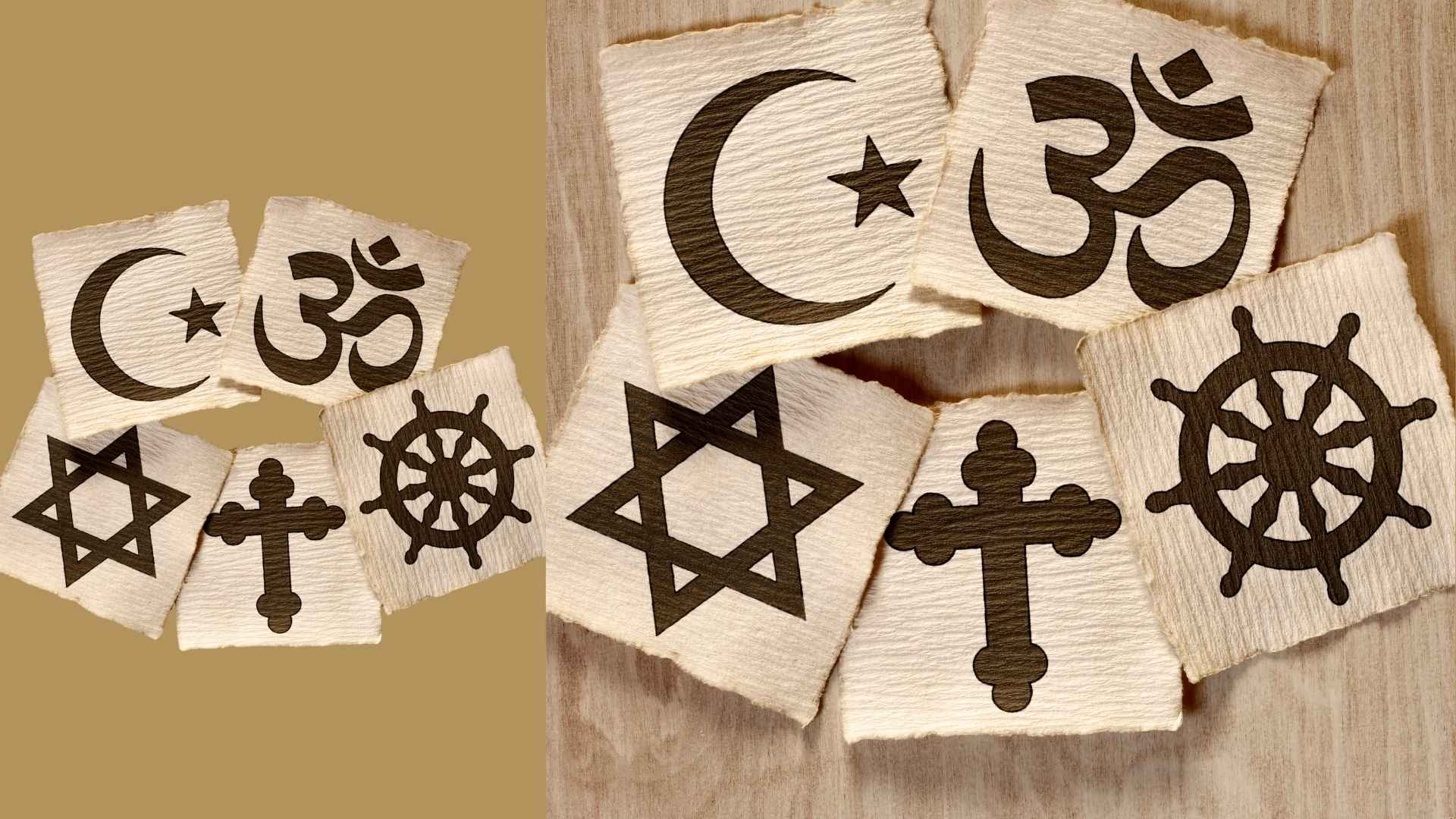Oldest Religions in the World- A Comprehensive and Detailed Overview
Oldest Religions in the World: Ever since man came to this earth, he has been trying to understand the secrets of the sky, the stars, the sun, the moon, and nature. This quest gave birth to various beliefs and religions. Sometimes man considered trees and stones sacred, sometimes he considered the sun and the moon to be gods, and sometimes he believed in the existence of a supreme being.
Today we will learn which are the oldest religions in the world, what their basic principles are, and how they have impacted humanity.
7 Oldest Religions in the World
1. Hinduism — 15th century BC to 5th century BC

Hinduism is said to be the world’s oldest living religion.
Early history: About 4000–5000 years ago in the Indian subcontinent
Holy scriptures: Vedas, Upanishads, Bhagavad Gita
Major beliefs:
Karma: Consequences according to actions
Dharma: Moral and religious duties
Avaguna: Cycle of birth and death
Moksha: Salvation and liberation of the soul
Characteristics: Hinduism has a number of gods and goddesses, and various forms of worship are practiced.
Impact: Deeply influenced religions such as Buddhism, Jainism, and Sikhism.
2. Zoroastrianism — 10th century BC to 5th century BC

Zoroastrianism originated in Iran with the teachings of the prophet Zoroaster.
Core Belief: The struggle between good and evil
Holy Being: Ahura Mazda
Core Teachings:
Truth and honesty
Following the path of goodness
The teaching of heaven and hell
Influence: Influenced Judaism, Christianity, and Islam, especially the concepts of heaven, hell, and Satan.
Current Status: Still alive today among the Parsi community in Iran and India.
3. Judaism — 9th century BC to 5th century BC

Judaism is the first major monotheistic religion that believes in one God.
Important Prophets: Prophet Abraham and Prophet Moses (peace be upon them all)
Holy Book: Torah
Main Beliefs:
Worship of one God
Moral life and justice
Observance of rituals and rituals
Impact: Had a fundamental impact on Christianity and Islam.
Current Status: Today, millions of Jews around the world follow this religion.
4. Jainism — 8th century BC to 2nd century BC

Jainism originated in the Indian subcontinent and was founded by Mahavira.
Main principles: Non-violence, truthfulness, non-stealing
Spiritual goal: Purity of soul and liberation from worldly desires
Characteristics:
Respect for all living beings
Simple life and meditation
Impact: The principles of ethical living and non-violence are considered important worldwide.
Current status: There are still millions of followers of Jainism in India today.
5. Confucianism — 6th century BC to 5th century BC

Based on the teachings of the Chinese philosopher Confucius.
Key teachings:
Respect for parents and elders
Justice, honesty, and social harmony
Moral and social responsibility
Characteristics: More philosophical and ethical system, including spirituality and principles for living.
Influence: Profound influence on the culture and governance of China and East Asia.
6. Buddhism — 6th century BC to 5th century BC

Founder: Gautama Buddha
Key teachings:
The cause of suffering is desire
Four Noble Truths
Eightfold Path
Characteristics: Nonviolence, compassion, simplicity, and meditation
Influence: Still popular in India, Thailand, Sri Lanka, Japan, and China.
7. Taoism — 6th century BC to 4th century BC

Originated in China by Lao Tzu.
Main principle: Living in harmony with nature
Concept: Yin and Yang, which represents the balance of the universe and the harmony of two opposing forces
Spiritual aspects: Meditation, simplicity, and ethical living
Influence: Deeply influenced China’s spiritual and cultural traditions
Influence and Importance of the Oldest Religions in World
These religions were not limited to worship or rituals, but also shaped human morality, social relationships, philosophy, and spirituality.
Hinduism, Buddhism, Zoroastrianism, and Jainism taught humanity goodness, truth, compassion, and self-realization, while Confucianism and Taoism introduced principles of social harmony and living in harmony with nature.
These teachings continue to influence societies and human behavior around the world today. They help us understand the importance of human values, spiritual peace, and living a moral life.
Must Read: 20 Islamic Quotes About Parents with Explanations
Final Thought
The oldest religions in the world have had a profound impact on human life, philosophy, and ethics. Some religions are still alive today, such as Hinduism, Buddhism, Judaism, and Zoroastrianism, while others exist mostly in the form of philosophical and spiritual systems, such as Confucianism and Taoism. Each religion has its own history, rituals, and impact on humanity, which is still visible in our lives and society today.
FAQs
What is the oldest religion in the world?
Hinduism is the oldest living religion in the world, founded approximately 4000–5000 years ago.
What was the first monotheistic religion?
Judaism is the first major monotheistic religion, which believes in one God.
What is the difference between Hinduism and Buddhism?
Hinduism believes in many gods and goddesses and believes in Avagon (birth and death), while Buddhism emphasizes more on spiritual salvation and the cessation of desires.
Does Zoroastrianism still exist today?
Yes, this religion is still alive in the Parsi community and Iran.
Why are Confucianism and Taoism called religions?
These are more philosophical and ethical systems, but they also include spirituality and principles of living, so they fall into the category of religion.







